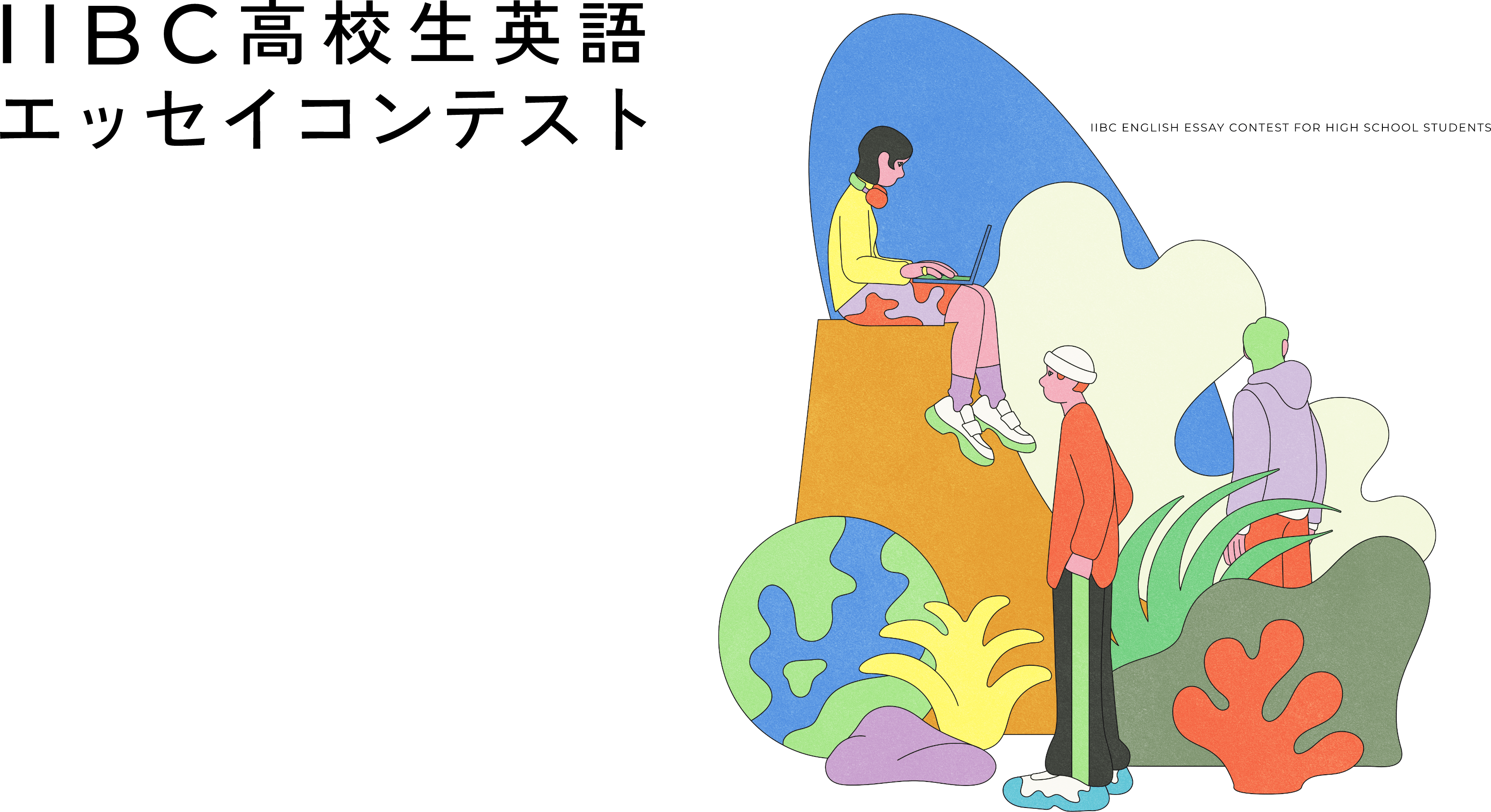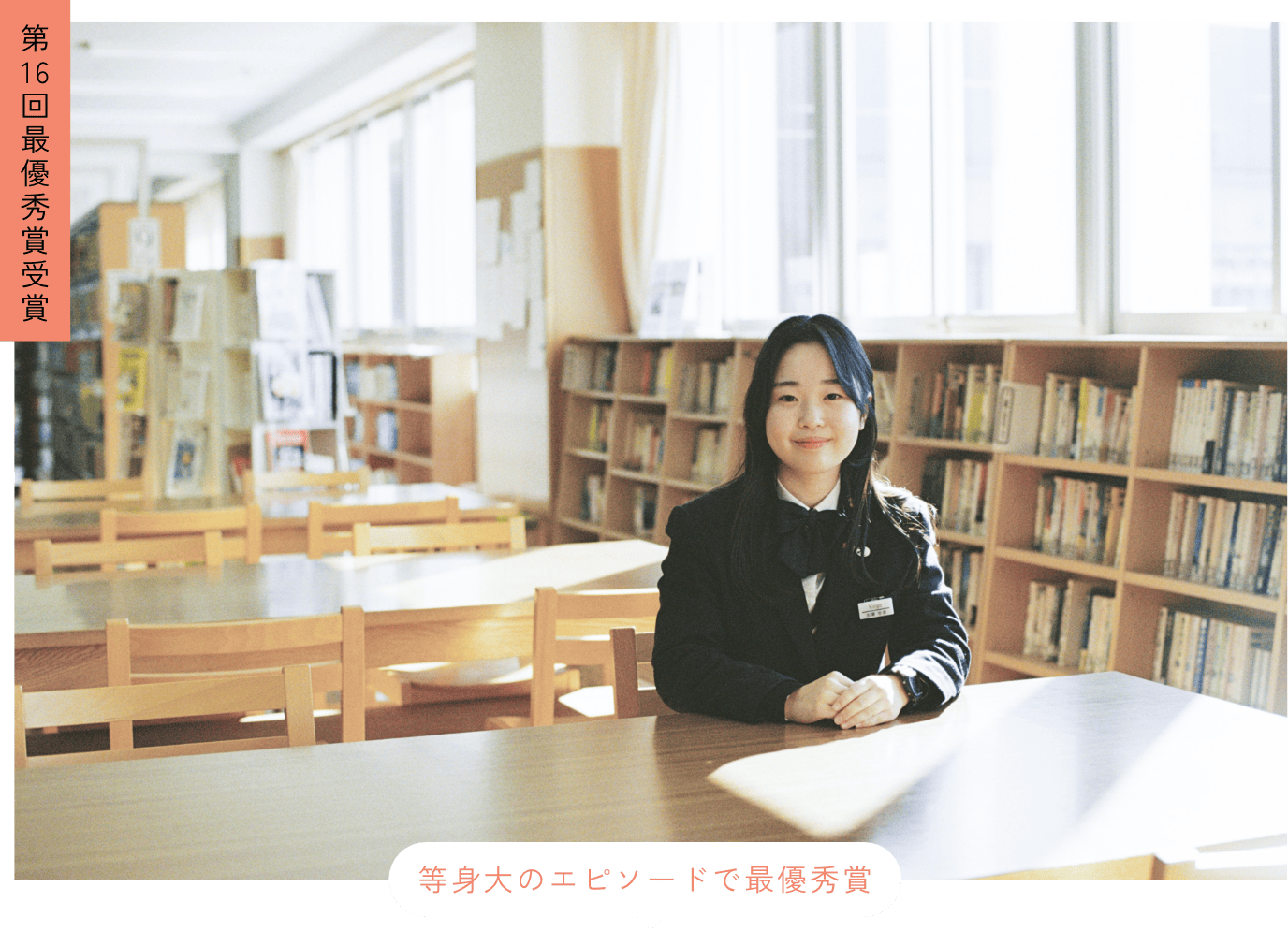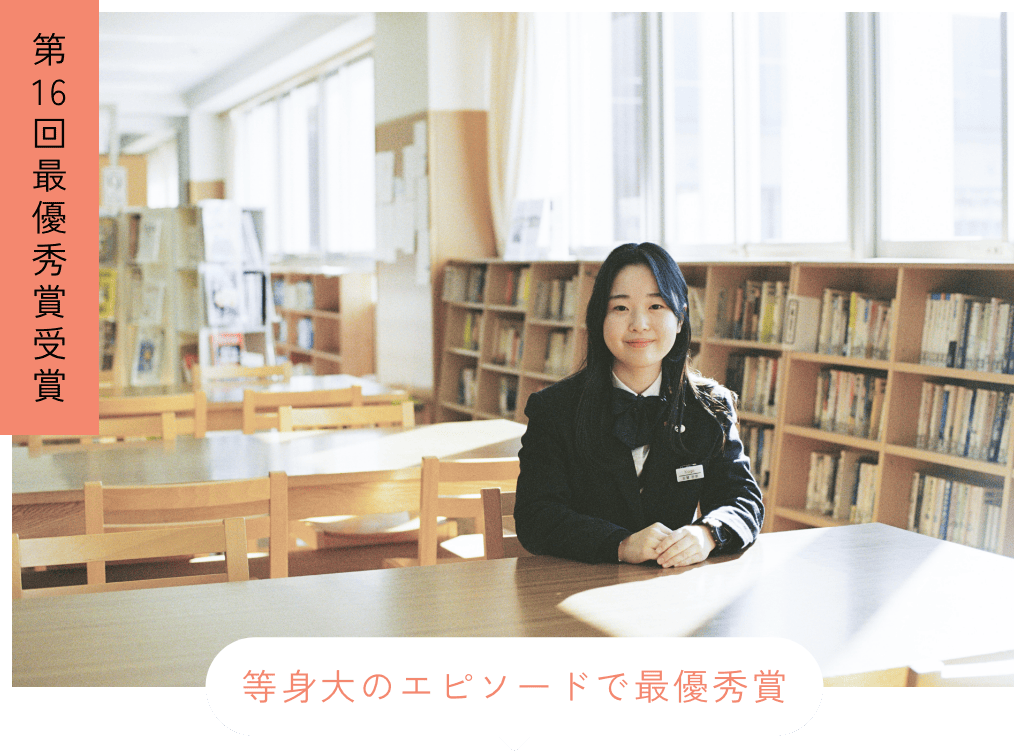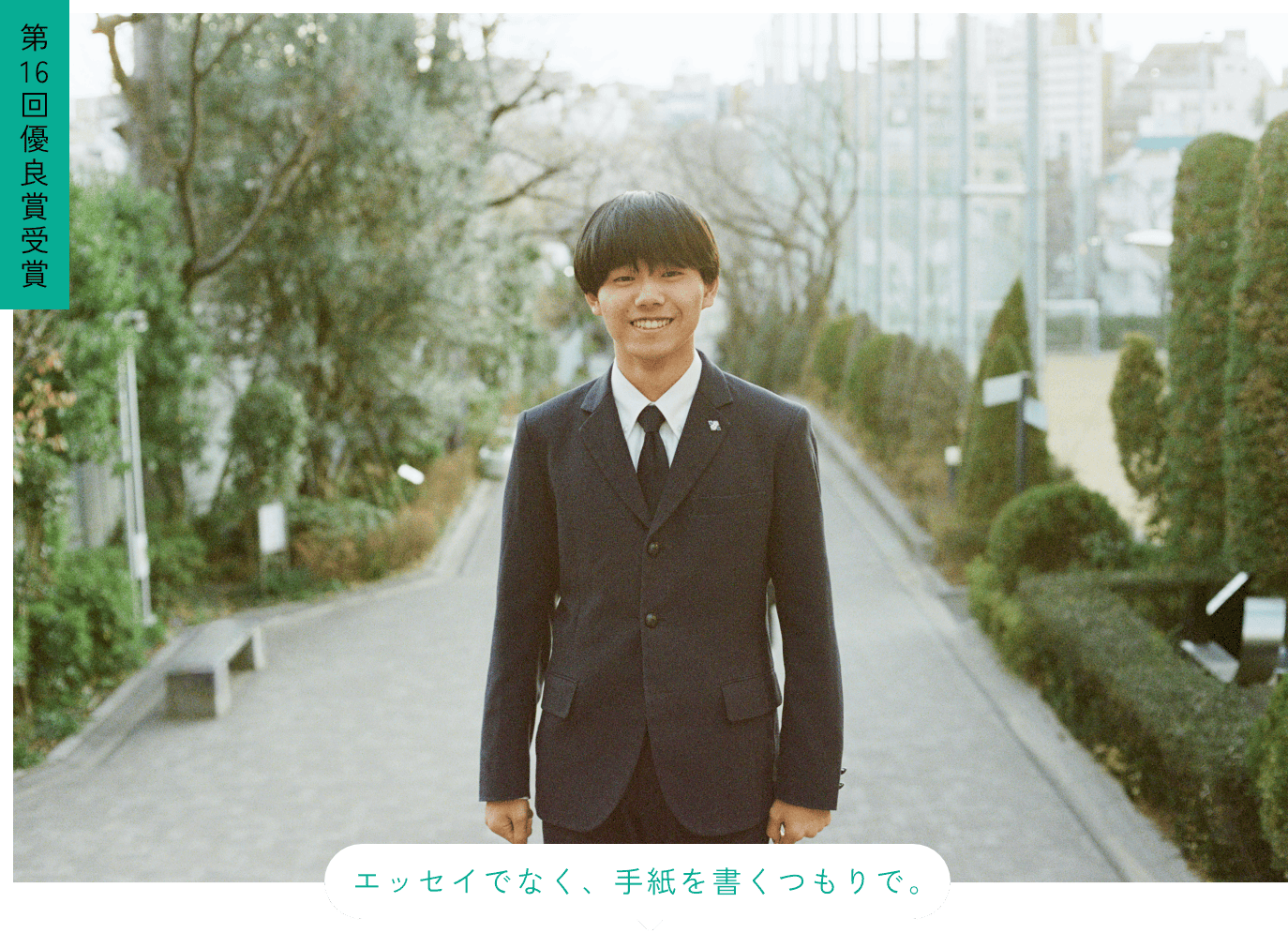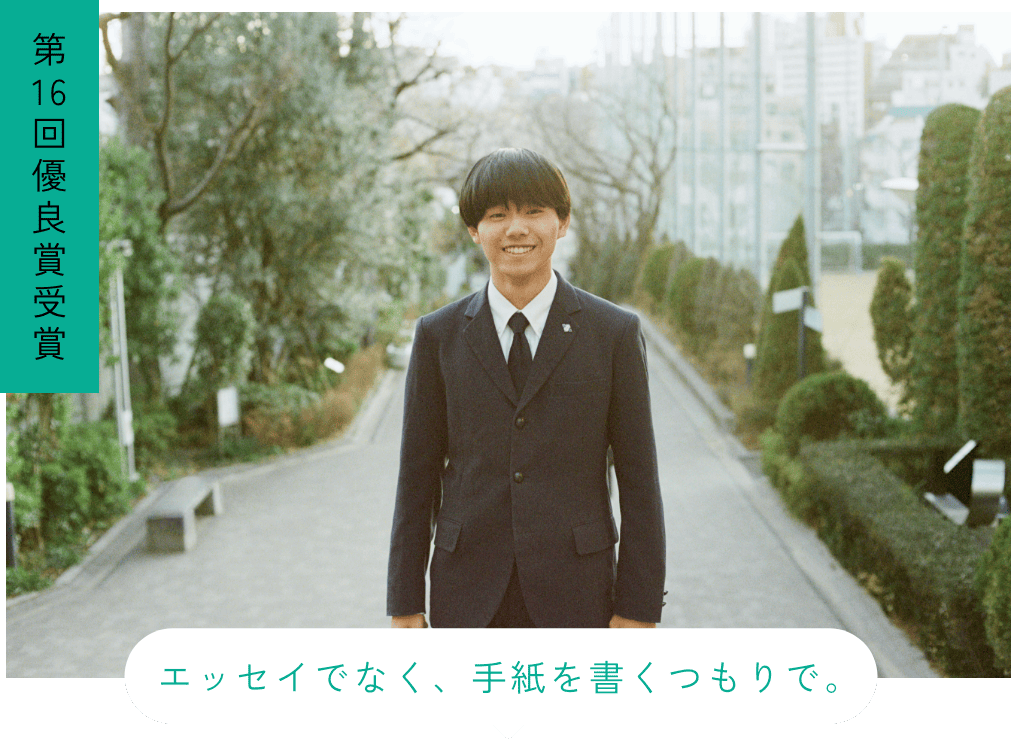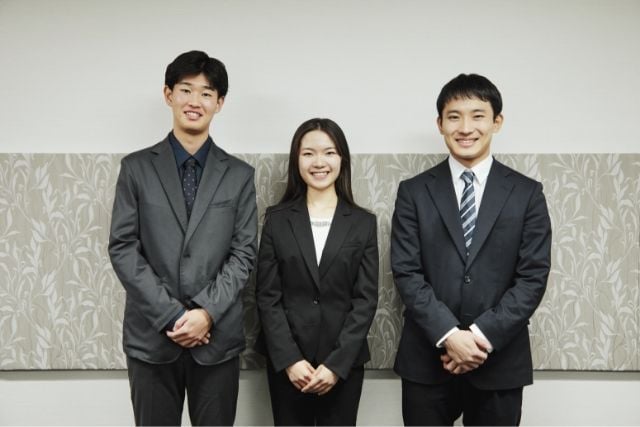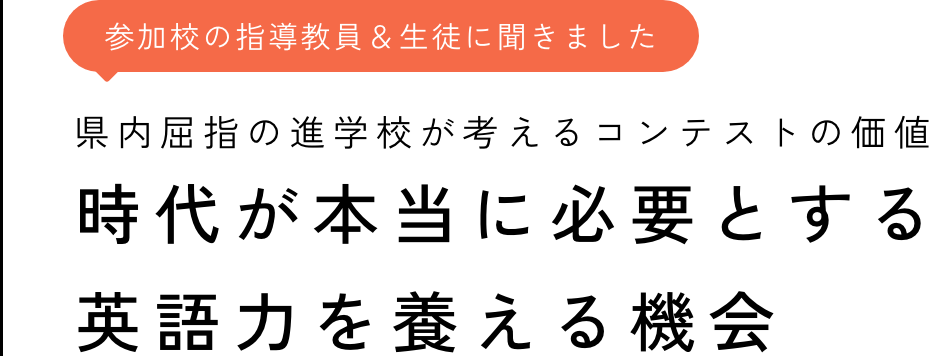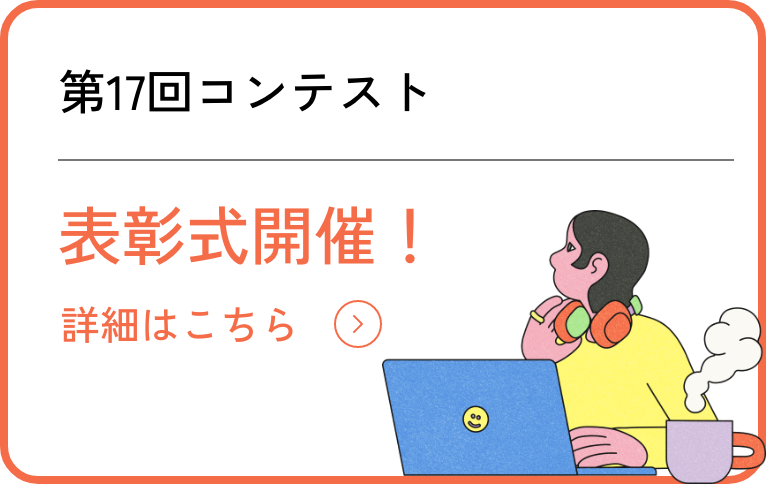Beyond the differences
- Anna Koga -
"Thank you for everything," I said, holding back tears, "I will never forget the amazing days I spent with you." I stood in front of the security gate in Pittsburgh International Airport. "I'm going to… miss you… so much," I managed to say between sobs. Clear sky, fresh air and a nice smell of morning coffee. Everything was too perfect to say goodbye to Cathy, my host sister.
It wasn't our first goodbye. Last year, Cathy came to my house in Japan as a homestay student. Following a wonderful week, she went back home to Pittsburgh, after which our friendship grew.
Filled with emotions, welling up with tears, I waited for her to say something. Compared to me crying my eyes out, she had a much brighter outlook on our parting. "Yeah," she chirped, "but I can't wait to see you again! Have a safe flight, Anna!"
A quick hug and she gently urged me to go to the gate.
If I am being honest with myself, and you the reader, I was disappointed. I had always believed that it is only polite to follow the Japanese cultural custom of nagori oshimu―saying goodbye reluctantly. I expected her to be just as reluctant. When I was walking into the line of the gate, my head filled with many questions. "Isn't she sad that I'm leaving? Won't she miss me even a little? Did I do something wrong?" I turned to see her face, but she was gone.
But as soon as I touched down, she texted me "I miss you so much already!"
Why now?!
Even after 3 in-flight movies and a long, restless nap on the airplane, I was still thinking about this ordeal. Perhaps she wasn't very moved because she no longer cared about me.
After some research online, I found that many fellow Japanese have been in the same situation. Not only that, but I also read a blog written by an American woman living in Japan introducing her experiences of parting with Japanese friends. What surprised me more was that she felt very awkward when Japanese showed reluctance to leaving. This reminded me of Hofstede's cultural dimensions theory on differences in cultures across countries and how those relate to values and behavior. According to the theory, Japan is a collectivistic country, meaning that people value connections and crave sustained connections with others. This accounts for the nagori oshimu custom: it is a display of our wish to remain together. In contrast, countries like America are individualistic and people value independence.
It might be true that cultural differences lead people to have different values. This past year, my host sister didn't text me as much as my other long-distance friends. Despite this, I neither think she doesn't care about me, nor do I believe people in individualistic countries don't care. When telling her that economics would prevent me from being able to visit her as I had planned, her family agreed to let me stay at her house. She then planned the entire trip for me. She took me to many places and let me try anything I wanted. She stuck by my side and introduced me to her amazing friends. Why would she have done this if she didn't care about me?
Regardless of the culture, everyone has their own life to live and their own sense of values to guide them. Having the exact same sense should not be the thing that maintains a friendship. If what you and your friends value the most is different, even if that changes, the memories of the good times you spent together stay. And that's all you need to stay connected.
I'm sure that I will have various people as my friends, and it may not be easy for me or them to keep in touch. When that time comes, I will remember my experiences throughout each friendship.
And in the end, even if Cathy doesn't cry, you can be sure that I will.
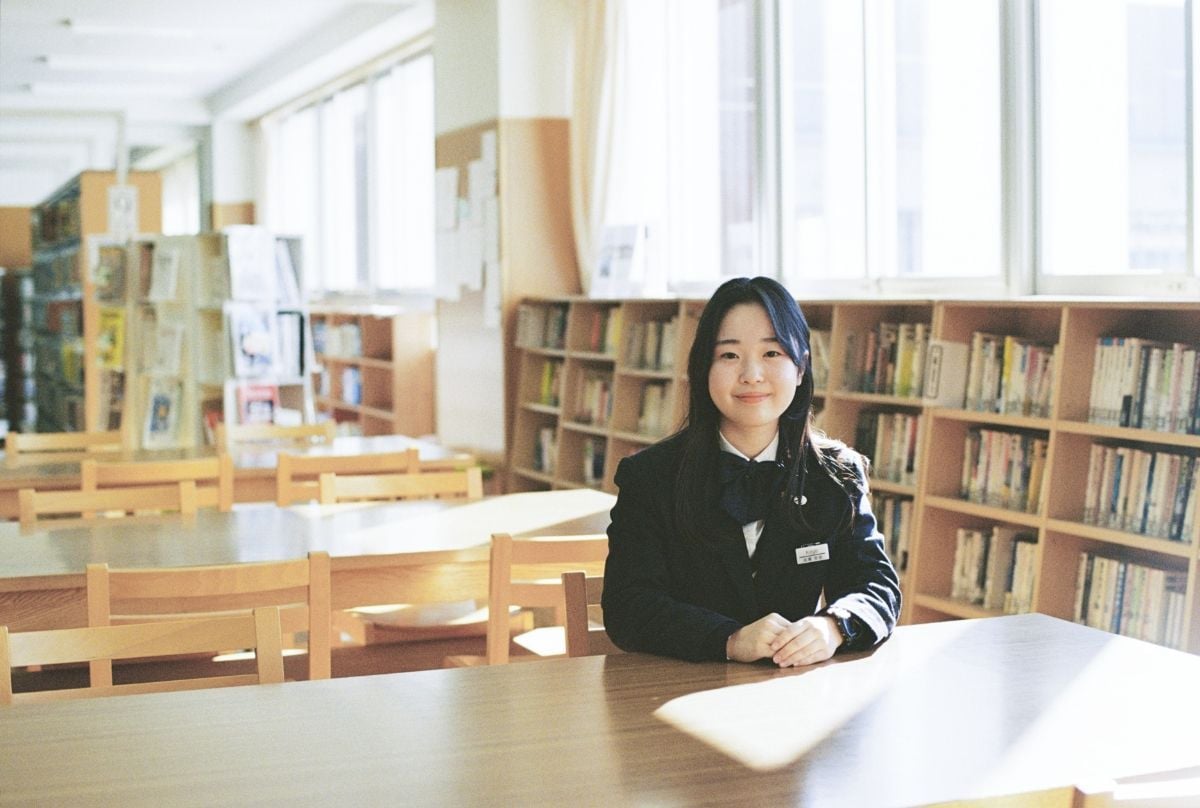
PROFILE
古賀 杏奈さん
Anna Koga
さいたま市立大宮国際中等教育学校5年。小学生時代は英語は話せなかったが、国際的なプログラムの多い現在の中高一貫校に入学したことで英語力が一気に飛躍。総合学習の授業の中で「文化の違い」を研究中。
違いをなくすのでなく、
違いを超えたい
「空港で名残惜しんでくれなかった……!」
アメリカの友人に対する小さな違和感
─古賀さんは、ホームステイ先のアメリカから帰るときに、空港で別れを惜しんでくれないアメリカの友人に対する「なんで!?」というモヤモヤと向き合い、エッセイを執筆。
「募集要項を見てすぐに、このエピソードが思い浮かびました(笑)。違いに悩まされたあと、それを乗り越えることで本当の意味で心と心が繫がって、一気に世界が広がる。まさに『つながる心、広がる世界』を体験したばかりだったので『私の感じたこと、そのものだ!』と。ただ、このエピソードはテーマに対しスケールが小さすぎるかも……と悩みもしました。文化の違いによって起こる戦争や差別のような大きな問題について書くべきではないかと。でも正直、今の自分はその問題に直結する個人的な経験や強い感情を持っていないため、『私の等身大のエピソードだって、文化の違いによって生まれる大きな問題とどこかで繫がっているはず』と思い直しました」
「17歳の私の考え」をありのままに
―エッセイの執筆で大切にしたことは?
「読んだ方が私の思考を追体験できるような形にできたらと思いました。何が起こって、どこに違和感を覚え、どんなリサーチをした結果、その気づきに至ったのか。『ネットで検索したらこんな意見が出てきた』という、自分以外の声も含めて丁寧に書くことで、私の悩みや葛藤をリアルに表現できたらと考えました。『これは17歳の今の私が出した答えで、数年後には考えが変わるかもしれない』というようなニュアンスまで含めて、ありのままの想いが伝えられていたら嬉しいです」
―文章表現でこだわった点は?
「過去に英語のスピーチコンテストにも出たことがあり、その台本を書く際に学んだことがあって。それは、日本語の作文では風景描写や会話文を入れると物語っぽくなりすぎるため避けがちだけど、英語の作文においてはそこをあまり気にしなくて良いということ。今回も、風景描写や会話文を取り入れて、英語の表現の豊かさを活かそうと思いました」
―結果、330作品の頂点に。
「受賞を知った日は家族で驚きながら、夜も先生にチャットをして『本当なの?』と確認したりしていました(笑)。やはり扱ったトピックが小さいことで『自分では納得できるエッセイだけど、受賞には向いていないかも』と思っていたので、信じられない気持ちでした。ただ、受賞できずとも、自分の体験と向き合い、言葉にできたことの満足感もあったので、書いて良かったと感じていたと思います」
─今後の展望を教えてください。
「文化を研究できる大学に進学して、その後は英語や第二外国語を使って文章を書く仕事に就けたらと想像しています。国ごと、地域ごと、家族ごとの様々な文化に触れながら、あらゆる違いに納得できるマインドセットを持つことが、人生を通した目標です」
Just a Man
- Shigeo Nonaka -
Always worried and embarrassed about what people think of me, I couldn't be friends with the ball.
The sweltering heat in Vietnam distorted the air in the distance. The enemy in front of me. I had to beat him to a pulp somehow. As I had stylishly demonstrated during recess, I straddled the ball a couple of times, got my feet tangled up, and fell over. The rubber chips of the artificial turf bounced off into my mouth, which felt disgusting. I looked up to see my adversary smirking with a thin smile that held a touch of disdain. "Embarrassing," I thought, "I'm done."
I wanted to run away already, so I quit the Japanese football club and joined a team with only Vietnamese players.
I crouched down between the messy protective netting, and it was a small futsal-size court. A red motorbike was perched at the foot of a lamppost outside. It was a large one, carrying what looked like iron bars on either side. A small man with a shaved head was carrying two twins in the red uniform of the Vietnamese national football team on a motorcycle. They were a father and his kids, very Vietnamese. However, the moment the man got off the bike and put his feet on the ground, my eyes were glued to his lower body. I could see the ground where his left leg should be. I realized the man was missing one leg. He was approaching me, flanked by crutches that I had earlier mistaken for iron bars on the bike's decoration. "Nihonjin-desu-ka?" the man asked in Japanese. When I said yes, he smiled and said, "Nakata!"— a Japanese footballer from some time ago.
The man's name was Duc. He was one half of a conjoined twin, so he had only one leg. He became famous after undergoing surgery in Japan, which is why he could speak Japanese. When I was surprised by this unexpected encounter, he asked me to practice passing together.
"Nakata! Pass!" he laughed.
He stood confidently in front of the goal on crutches, and when I hesitantly kicked a soft pass to him, he slapped me with a powerful pass, as if to kick away my hesitation. I responded with a strong ball this time. As we exchanged passes, his face came alive. His passes were inevitably rough, but he didn't care about that—he simply loved the game. Seeing him happy made me feel ashamed of having been reserved toward him. Before he is disabled, he is just a man.
He bounced around on crutches, gamely chasing the ball and passing to me. His honest, powerful passes seemed to inspire me to be myself. I felt the impact of the ball through my ankles and across my body and thought, "I love football."
When we finished practicing passes, he said, "I haven't had this much fun playing football in a long time, Nakata!" He then got on his bike and dashed back home with the twins.
Outside, where thousands of power lines were tangled, a horde of motorcycles roared in disorder, and he was among them. He was able to bring his children to this futsal court because, despite his missing leg, he was allowed to drive a motorcycle. In Japan, people are protected by regulations. But in Vietnam, this free-spiritedness allows people like Duc to live freely.
From that day on, we played football together every week.
Six years later, I'm in Japan now. I have retired from football, just as Nakata did. I have found something new that I like. You're the one who taught me to love something. Just the other day, I saw you again on the cinema screen in a film about your life. So, I'm writing this now because I can't help the memories from pouring out of me. You look a little older now, but you're smiling like you did then. Your twins, Fuji and Sakura, are much taller now. They grew up fine, didn't they? You must be a good dad.
Well, even in the cinema, you're still just a man to me. But hey, because of you, I can walk on these two legs today, Duc.
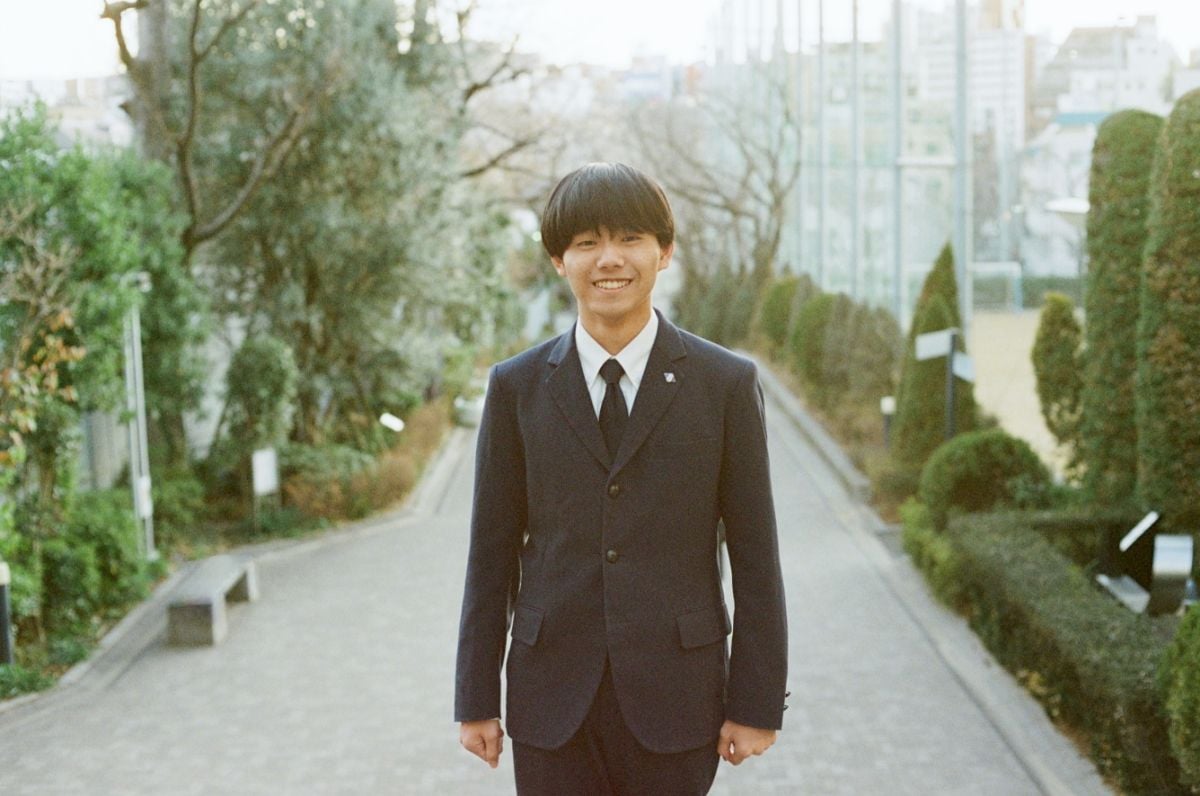
PROFILE
野中 茂壮さん
Shigeo Nonaka
聖学院高等学校1年。家族の転勤により幼少期からベトナムへ。その後、ミャンマーで暮らし始めるが、クーデターにより帰国。「クーデターが起こる前のミャンマーの魅力」を伝えるため、グローバルユース国連大使など様々な活動に励む。
一番簡単な言葉が、
一番いい言葉
人生のターニングポイントを
エッセイのトピックに
─下半身がつながって生まれた、ベトナムの双子「ベトちゃんドクちゃん」。日本でも教科書や絵本を通して知られていますが、野中さんは大人になった「ドクさん」にベトナムで偶然出会い、その経験を題材にエッセイを執筆されました。
「中学時代から参加したいと思っていたこのコンテストで、僕の人生のターニングポイントについて振り返りたいと考えました。小学生のときに彼と出会えて僕は大きな影響を受けたのに、高校生になるまでその経験を言葉にして整理する時間がつくれませんでした。だからエッセイを書くことで、僕が彼とのコミュニケーションを通して受けたとったものを言語化できたらと。溢れ出てくる想いをまとめることで、自分の原点を確認する機会になりました」
─タイトル『Just a Man』に込めた想いは?
「このタイトルは、エッセイを書き始める前から決まっていました。ドクさんは世の中では『結合双生児の弟』『障がい者』として認知されているかもしれませんが、僕にとっては『ドクさん』という名前をもつ、“ただのひとりの人間”でしかない。それを一番強調したいと思いました。ドクさんは片足がないけど、助けてもらったのは僕。きっと人は誰しもが何かしら足りない部分があって、だからこそ助け合える。今回のエッセイを書き切って、そういうことにも気づくことができました」
─構成や文章表現でこだわった点を教えてください。
「実は今回の執筆をするにあたり、エッセイのセオリーや審査員の方々の視点などは意識しませんでした。エッセイというよりは『ドクさんへの手紙』を書こうというつもりで、個人に向けて素直な気持ちを、かっこつけない言葉で綴りました。英語という制約があったからこそ、余計な表現やボキャブラリーを使わず、ストレートに書けた面もあると思います。一番簡単な言葉が、一番いい言葉になることもあるのかなと今は感じています」
ベトナム大使館経由で本人からも連絡が!
―受賞を知ったときの気持ちは?
「まずはドクさんとの出会いに対する感謝。そして応募するに当たって手続きなどをサポートしてくださった先生たちへの感謝の気持ちが込み上げました。受賞の報告はドクさんに最初にしたいと思い、ベトナム大使館を通して連絡したところ、ドクさんからお返事と当時の写真もいただきました。覚えてもらえていたこともとても嬉しかったです」
―今後の展望を教えてください。
「英語の魅力は、世界中の多くの人にメッセージを届けられることです。現在、僕は小学生時代を過ごしたミャンマーの魅力を国内外に伝える活動をしています。また、『障壁の中で人々が施し合いながら生きていく方法』について学びたいと考えています。今後も英語を活かして様々なことに取り組んでいきたいです」
参加校の指導教員&生徒に聞きました
県内屈指の進学校が考えるコンテストの価値
時代が本当に必要とする
英語力を養える機会
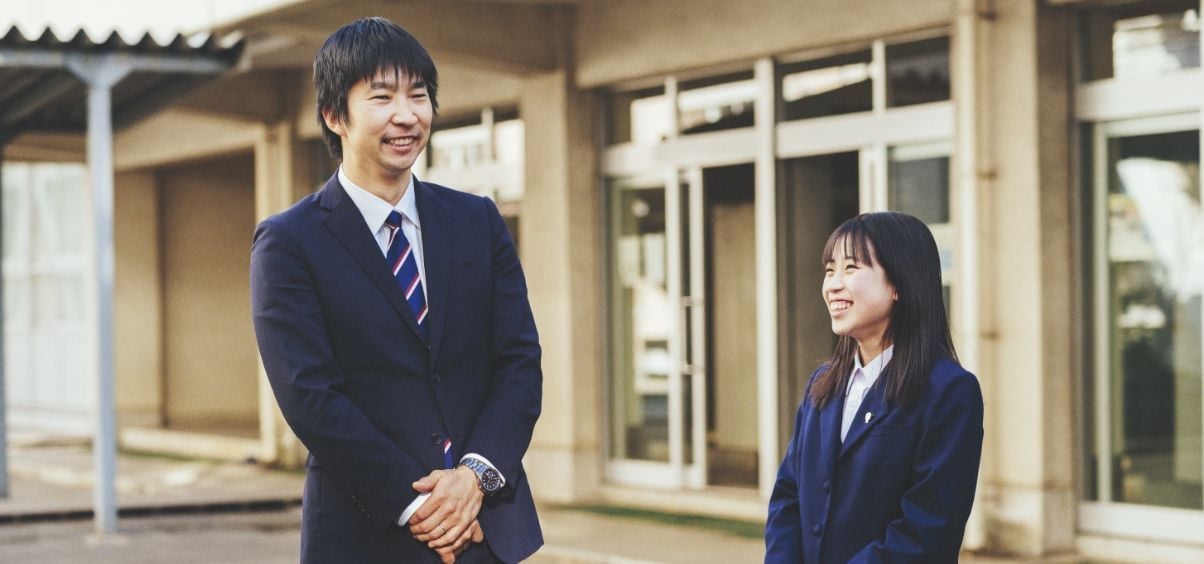
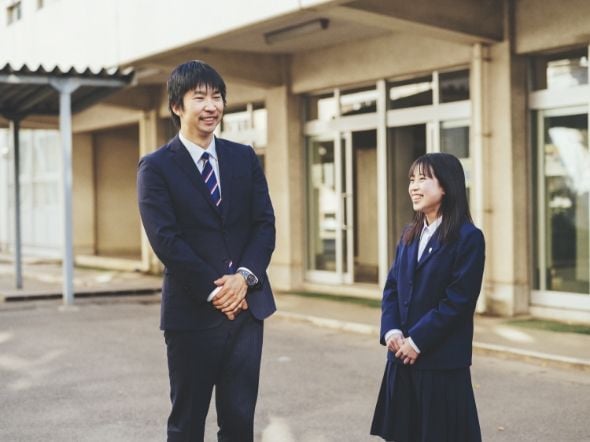
受験を控える夏に
3年生全員が挑戦した理由
―県立千葉高等学校は、3年生のほぼ全員、約250名が本コンテストに参加。受験を控える夏の時期に、英語の授業の3時間分を使って取り組んでくださったとうかがいました。

田中航祐先生(以下、田中)
高校生が500 ~700語という長い英文を書く機会は、授業や受験勉強の中ではそうあるものではありません。しかし、グローバル時代における生徒の未来を考えると、自分の考えを世界中の人々が理解できる形で伝える力は必要不可欠。大学に進学してから、社会に出てから、近い将来に必ず「高校時代にやっておいて良かった」と思える経験になると考え、参加を決めました。

渡邉衣さん(以下、渡邉)
帰国子女でもなく留学経験もない私は、英語は正直苦手で「受験科目」の1つという認識でしたが、今回エッセイを書いてみて、「そもそも英語って『科目』じゃなくて、人と繫がるための『手段』なんだ」と捉え直すことができました。英語への向き合い方がポジティブになる、大切な気付きだと感じています。

田中
もちろん「大学入試の英語に繫がらない」わけでもありません。入試でも100語以上の英文を書くテストは多くありますし、自分が英文を書くことで、他人が書いた英文を読解する力が養われる側面もある。このエッセイコンテストへの参加は、総合的な英語力を高める機会になると考えています。
自分の体験を、素直な言葉で
誰もが参加できるコンテスト
―「つながる心、広がる世界 ~コミュニケーションを通じた響きあい~」というテーマについてはいかがでしたか?

田中
多様性をどう解釈し、尊重するかが重要な今、高校生のうちから向き合うべきテーマだと感じました。国境を超えた交流でなくても、日常の生活を丁寧に見れば、価値観の違いによる衝突は至るところにあるため、誰もが取り組めるテーマです。実際に約250名分のエッセイを読んで、生徒一人ひとりが自分の体験を振り返り、掘り下げる貴重な機会になっていたと感じます。母語ではないからこそ、シンプルな言葉で、ストレートな想いを表現できた生徒も多かったですね。

渡邉
私は障がいを持つ従姉妹との交流で感じた学びや反省をエッセイにしました。英語のテストを運営する団体が開催するコンテストなので、海外の人との交流について書いた方が評価されると思っていたため、受賞できたことは本当に驚きでした。エッセイを書くことで「コミュニケーションを通じた響き合い」は、言語以外の方法でも可能だということを自分の中で整理でき、受賞したことで、その気付きをいろいろな方に読んでいただけたことが嬉しいです。
―今後について教えてください。

田中
これからも学校として、コンテストへの参加を続けられたらと思っています。今回渡邉さんの受賞によって、海外経験がなくても評価されることが証明されたので、多くの生徒たちのモチベーションも高まると感じています。教師としても、エッセイを通して生徒それぞれの物事に対する見方や考え方を知る機会なので、楽しみたいです。

渡邉
私は医学部に進学することが決まり、小児科医を目指しています。エッセイコンテストに参加したことで自分の考えを伝えることに少し自信を持てました。これからも様々な立場の人のことを考えながら、社会に貢献できるようになりたいと思っています。
What my little cousin with a disability taught me
- Kinu Watanabe -
My cousin’s arms are her mouth. Her hands and arms move, willed in all directions ― this is her way of communicating. Rarely do I spend time without complicated feelings when people look at her with strange eyes.
Two years ago in May, I enjoyed a sunny day at the park with my cousins and my sisters. We played on the playground for three or four hours. Then my mother called me and said, “It’s lunch time, so come home.” I thought I had to begin working hard. I told everyone “Let’s go home,” but only one person didn’t nod. It was my cute cousin. She has Down’s syndrome. She is an elementary school student who is very good at dancing and is not very good at talking.
I had known that she was fond of the park. At that time, first she pronounced “Ya!” or “N!” She could only say those few words. However, we had talked a lot by that point, so I understood what she meant by saying those unclear words and using her arms and hands.
She didn’t want to go home. First, she said only “Ya!” Then she continued with some unclear words and gestures. Her statement was long, and there were a lot of phrases and gestures that I had never seen before. Then, a boy who was playing in the same park looked at us curiously. His eyes looked as if we had been doing something strange. Moreover, another child saw the unusual communication that is our style. I thought we had to hurry home. However, my strongest feeling was that of being embarrassed, being in the line of sight of those children. In order to get home early, I badly pretended to understand her claim. But she didn’t move. She knew I didn’t understand or listen to her, really. The more I pretended to understand, the harder her gestures and her unclear words became. A few minutes later, I realized that I had to understand the content of her argument. First, I looked into her eyes. And I observed her gestures. Also, I remembered what she liked and the memories I had with her. She was circling her arms around her ― and alternating between them. Her face looked down. She repeated this movement over and over. Then, it came to me. It was ‘a pool’. I remembered she liked swimming. Then I asked her “Do you want to go swimming?” A big smile appeared on her face. I felt the moment our hearts connected.
Once, at a station, I was asked about the train by someone who seemed to be a foreign tourist. The language they spoke was neither Japanese nor English. We conversed with maximum gestures and few proper nouns. At first, I didn’t understand what they were saying, and I was scared by their expressions. However, the one moment when we understood each other, smiles appeared on their faces. ― It was the same with my cousin’s case.
Some people say they cannot understand someone else because the other person speaks in English. It’s true that the language barrier is huge. However, just because you have a conversation in Japanese, it doesn’t necessarily mean you can understand everything other people are thinking. I believe that the key to successful communication is not the language you use, but how much consideration you have for the other person. Different backgrounds may lead different forms of communication. However, putting yourself in the other person’s shoes and being considerate enable you to communicate with them. Therefore, I think that talking with someone who speaks another language and talking with a person with a disability are the same. When our hearts connect, a smile appears. Also, the harder it is to communicate and the longer it takes to reach heart-to-heart, the bigger this smile will become.
In recent years, Japan and the world have become rich in diversity, with an increasing number of people with disabilities and immigrants. Therefore, we need to communicate with various people with different backgrounds.
I also want to use this experience to communicate with a wide variety of people and be of help to someone.
アルムナイ審査員としても参加!
大学生の先輩が語る「受賞後」

東京大学 法学部(4年)
正岡 優一さん
Yuichi Masaoka

東京大学 法学部(4年)
正岡 優一さん
Yuichi Masaoka
小学生時代を過ごしたベルギーでの異文化体験と、1970年代の米中国交正常化について書いたエッセイ「The Little Ball Moves the Big Ball」で第10回(2018年度)最優秀賞を受賞

慶應義塾大学 法学部(1年)
矢野 絵理奈さん
Erina Yano

慶應義塾大学 法学部(1年)
矢野 絵理奈さん
Erina Yano
中学時代のアメリカ留学を振り返り、固定概念に捉われず正直な意見を伝える大切さを書いたエッセイ「Face the Discomfort」で第13回(2021年度)最優秀賞・日米協会会長賞・アルムナイ特別賞を受賞

立命館アジア太平洋大学
国際経営学部(1年)
横田 卓己さん
Takumi Yokota

立命館アジア太平洋大学 国際経営学部(1年)
横田 卓己さん
Takumi Yokota
中学時代のサッカーのドイツ遠征で、国籍や人種にとらわれない視野を持つことの大切さに気づいた経験を書いたエッセイ「Football More than a_Game」で第14回(2022年度)特別賞を受賞
受賞から数年。
未来はどう広がった?
―過去に本コンテストで受賞された皆さん。「アルムナイ審査員」という形でまたコンテストに関わろうと思った理由は?

正岡優一さん(以下、正岡)
僕は高校1年生のときに最優秀賞を受賞し、副賞としてイギリスに2週間留学をさせていただきました。その経験が今の自分や進路に大きな影響を与えてくれたものとなったので、大学最後の年に、改めてこのコンテストに関わることで恩返しができたらと思い応募しました。

矢野絵理奈さん(以下、矢野)
私も高校1年生のときに受賞したのですが、表彰式で当時アルムナイ審査員をされていた大学生と交流する機会をいただき、様々な角度で刺激を受けました。次は自分が高校生の皆さんをインスパイアする側に、と考えて参加しました。

横田卓己さん(以下、横田)
僕はもともと英語が苦手でしたが、受賞をきっかけに好きになりました。あまり勉強はせず、サッカーばかりしてきた自分が審査員としてコンテストに関わることで、自分と同じような高校生たちの応募のハードルを下げられるのではないか、と思い参加を決めました。
―受賞したことで、その後の進路や活動などにどのような影響がありましたか?

正岡
外交に触れたエッセイが評価されたことで「国際的なフィールドで仕事をしたい」という思いが強まり、卒業後の進路選択にも繋がりました。自分は幼少期から現在まで恵まれた環境にいたと感じており、自分が得られたものを、これからは国の制度や基盤をつくる仕事を通して社会に還元していけたらと考えています。

矢野
日米協会会長賞をいただいたことをきっかけに、大学生になってからは日米協会でインターンをしています。日米関係に関する高校生クイズ大会の運営など、様々な形で、もともと興味のあった日米関係についての理解を深めることができています。

横田
英語が苦手だった僕は、受賞で自信を得たのもありますが、それに見合うようにもっと英語力を伸ばそうと努力するようになりました。将来は、大好きなサッカーに関わる仕事をしたいと思っていますが、以前なら国内しか視野になかったのが、世界に出ることへの躊躇がなくなって、今は国外にも視野を広げて活動していきたいと考えています。
独自の視点・感性を活かした
「素直な発見と学び」を評価
―審査員として応募作品を読み、どのようなことを感じましたか?

正岡
皆さんの多種多様なエッセイを読んで改めて感じたのは、「異文化コミュニケーション」というのは、様々な形で身近にあるということ。国境や言語を超えたコミュニケーション以外を取り上げた作品には、日常での気づきを詳細に言語化されたものが多く、刺激をもらいました。

矢野
宗教だったりLGBTQだったり、幅広いトピックを高校生ならではの豊かな感性で捉えたエッセイを読むのは楽しい時間でした。上手に文章を書くことより、素直に思ったことを書くことが大切で、結果的にそれがユニークなエッセイとして高い評価を受けるんだろうということも感じました。

横田
最終選考まで残っていた作品の書き手は、小さな出来事や誰かのちょっとした一言から学びを得ることがうまい人たちですよね。そういう人たちってエッセイに限らず、これから社会で活躍していく人たちなんだろうな……と審査する立場になって客観的に思いました。僕もそういう姿勢を取り入れていきたいと感じました。
―最後に、応募する高校生にメッセージを。

正岡
たとえ受賞できなくても、参加するだけで自分自身や世の中についての発見を得られるコンテストだと思います。ぜひ、世界を広げるための一歩として取り組んでみてください。
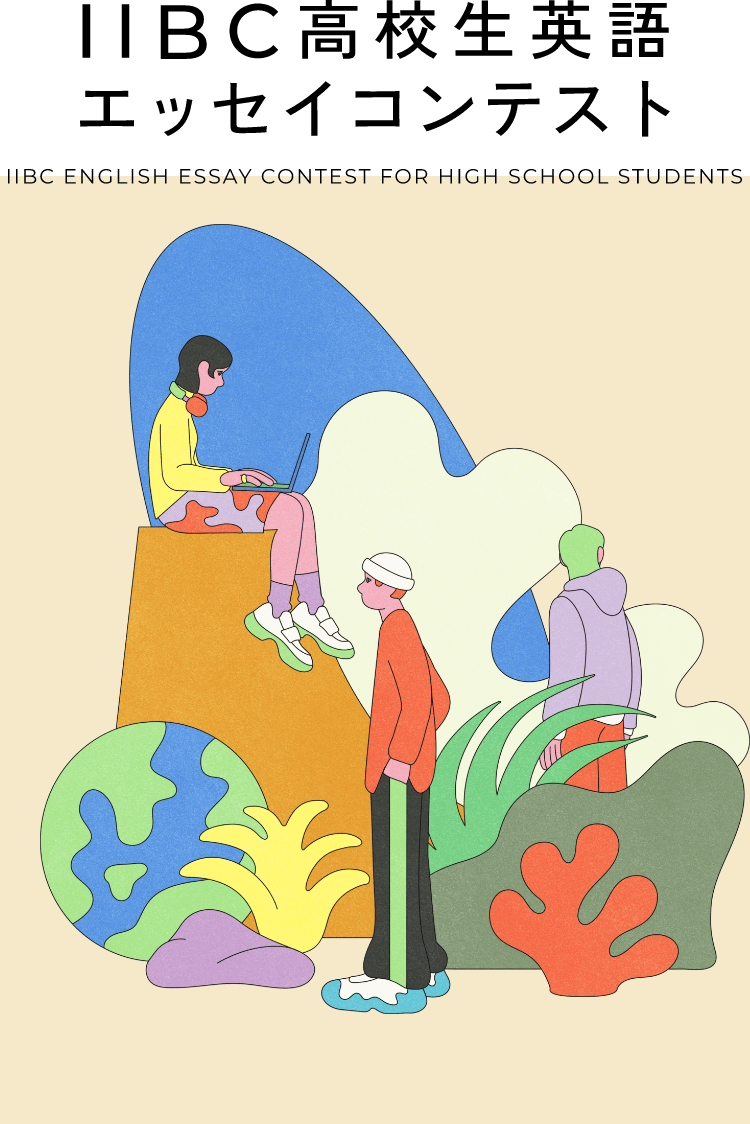


ABOUT
英語は、広く世界に伝えるツール。
大切なのは、「何を」伝えたいか。
IIBC高校生英語エッセイコンテストは
2009年に、TOEIC®テスト実施30周年を
記念して設立されました。
『高校生の皆さんに、
自分の考えや意見を
英語で発信する機会をつくりたい』
そんな想いから始まったのが、このコンテストです。
募集テーマは
『つながる心、広がる世界 ~
コミュニケーションを通じた響きあい~』
私たちは多様な価値観に
触れながら日々を過ごしています。
文化、バックグラウンド、考え方……
様々な違いをコミュニケーションを通じて
認め理解することで、心と心がつながる。
つながることで世界が広がっていく。
私たちIIBCは、これを
コミュニケーションがもたらす
響きあいと考えます。
きっと、異なる部分が大きいほど、
つながった瞬間に広がる世界は
大きく感じられるでしょう。
特別な経験ではなく、
日常にある身近なエピソードで構いません。
皆さんが得た気づきや学びを
英語というツールを使ってエッセイにしてください。
※TOEICテスト = 現在のTOEIC Listening & Reading Test
MOVIE
第16回(2024年)表彰式の様子
AWARDEE
受賞者紹介
先生の声
TEACHERS' VOICE
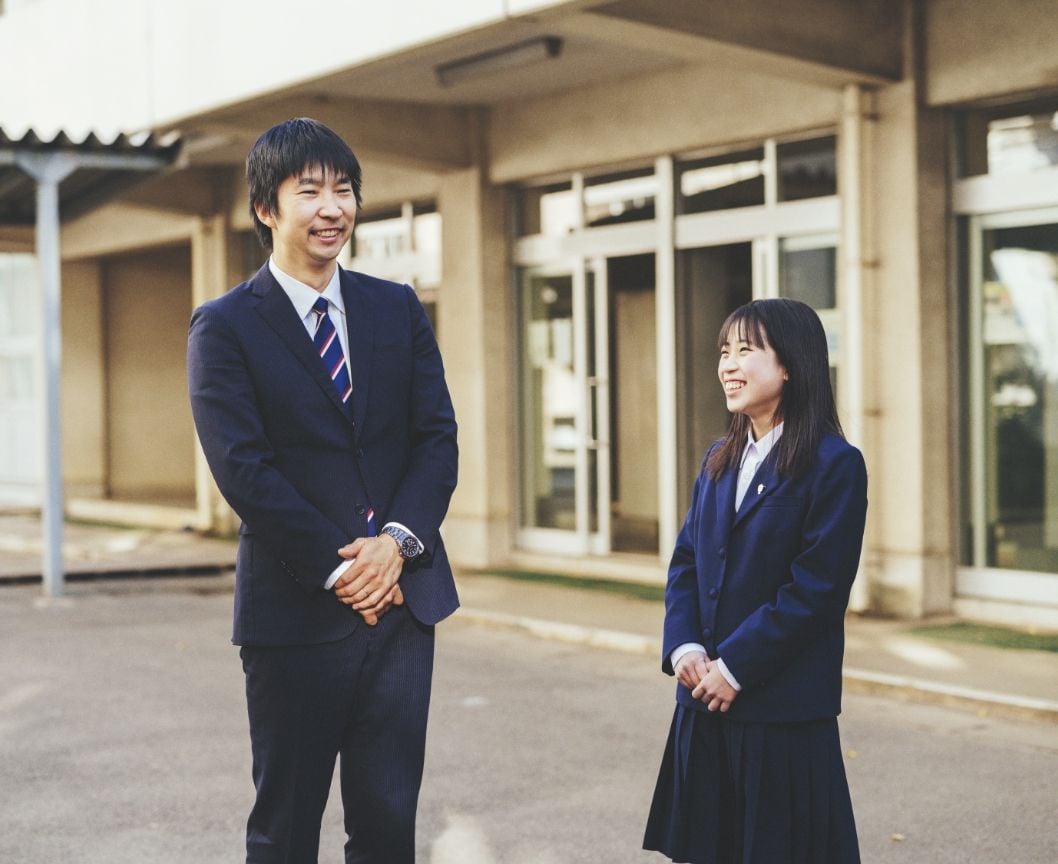
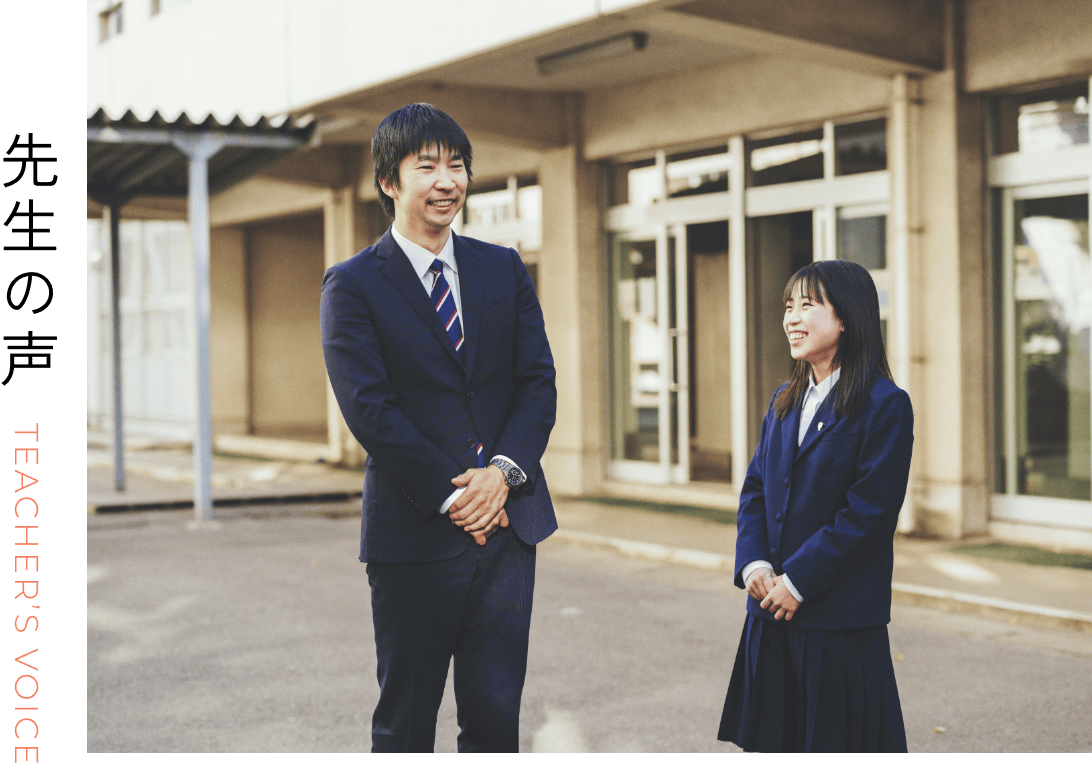
FAQ
よくある質問
両方の応募はできません。個人部門もしくは団体部門のどちらか一方をお選びください。
※個人部門は1校あたり3作品まで、団体部門は 1校あたり20作品(20名)以上から応募が可能です。
個人の応募は受付しておりません。
学校単位で応募可能な作品数※を設けておりますので、英語をご指導されている学校の先生に応募のご相談をお願いします。
※個人部門は1校あたり3作品まで、団体部門は1校あたり20作品(20名)以上から応募が可能です。
団体部門は1校あたり20作品(20名)以上から応募が可能です。
19作品(19名)以下での応募は受付しておりません。
※離島や山間部等の学校で、生徒数が上記規定に満たない場合は事務局までご相談ください。
10月下旬を予定しております。
はい。タイトルを除く本文のみの語数をカウントして、エッセイの最後にその語数のご記入をお願いします。
語数と受賞確率は関係ございません。
ご応募される生徒様の母語が英語でなければ、参加可能です。
含まれません。
CONTACT
お問い合わせ
一般財団法人 国際ビジネスコミュニケーション協会
IIBC高校生英語エッセイコンテスト事務局





